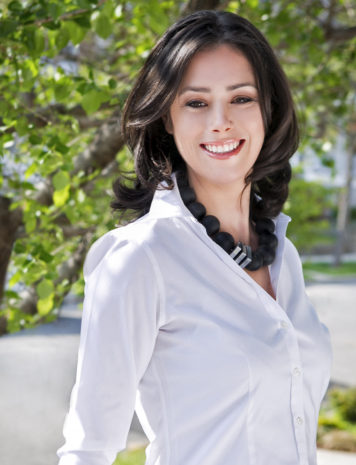Entrepreneur from New Zealand Creates Jobs while Helping Americans Give Back
Date: March 7, 2017

When Dale Nirvani Pfeifer stumbled upon a Facebook post about an Afghan teacher trying to build a school for girls, she immediately felt compelled to give. Yet it took a good half hour to hunt down the website and navigate the donation form. “How many people just give up?” she thought. “How much money gets left in the pockets of well-intentioned people?” Several years later, Pfeifer launched Goodworld, a social payments platform that turns charitable giving into an effortless affair. With Goodworld’s technology, a reader can type #donate under a charity’s Facebook post or in a tweet, and Goodworld will automatically process the donation.
Pfeifer launched Goodworld in 2015 with 40 nonprofits already participating and $1.7 million in seed funding. Within a year, more than 1,600 charities had raised a combined $3 million in pledged donations. Today the company has 14 employees, 11 of whom were born in America.
Americans believe ‘if you can dream it, you can do it,’ and I really love that about this country.
“America is the most generous country in the world, so it’s a good place to launch a business driven by social impact,” says Pfeifer, who cites the following statistic: Of the $373 billion that Americans donated to charity in 2015, $265 billion came directly from individuals. She says that a charity with an established social media presence receives an average of $2,200 per Facebook fundraising post. “I come from a very small country at the bottom of the world and there’s not a lot of access to resources and capital, and it’s not as entrepreneurially focused as America,” Pfeifer adds. “Americans believe ‘if you can dream it, you can do it,’ and I really love that about this country.”
Pfeifer was born and raised in Invercargill, New Zealand, a tiny town on the country’s southern coast. After earning an undergraduate degree in business psychology and Master’s Degree in Management from Massey University, Pfeifer ran a university research center, a job that required frequent travel to the United States. She was offered a job leading programs at the EastWest Institute in New York and later moved to Washington, D.C., where she directed programs at the Project on National Security Reform, Push4Peace, and FutureView, Inc.
Her connections, along with those of the D.C. incubator 1776, helped Pfeifer land impressive early investors in her startup, including senior-level executives from the Washington Post, Microsoft, General Motors, the Consumer Financial Protection Bureau, PayPal, and Visa. She received an invitation to London from then-British Prime Minister David Cameron, who was intrigued by Goodworld’s potential to raise money for disaster relief. And she was among a group of entrepreneurs selected to speak with President Barack Obama during his visit to 1776, where he referred to Goodworld as “a big opportunity for philanthropy.”
While Pfeifer has had real and meaningful successes, however, her visa path was not always an easy one. When Pfeifer decided to venture into the nonprofit world, she faced the terrifying reality that she would no longer have an employer-sponsored visa to remain in the United States. “It makes you feel a little bit vulnerable when you build a whole life here but you don’t know whether you’re going to be able to stay and work here,” she says.
Pfeifer managed to secure a special visa for individuals with extraordinary abilities. But she knows that many immigrant entrepreneurs aren’t so fortunate. She thinks everyone would benefit if more immigrants with top-notch educations and needed skills—such as degrees in engineering or technology—were permitted to stay and work in this country.
“In certain areas it would really do the United States a lot of benefit if the immigration system was relaxed,” she says. “The United States is such a diverse country, and the diversity of thought and perspectives has made America the great nation it is today.”
